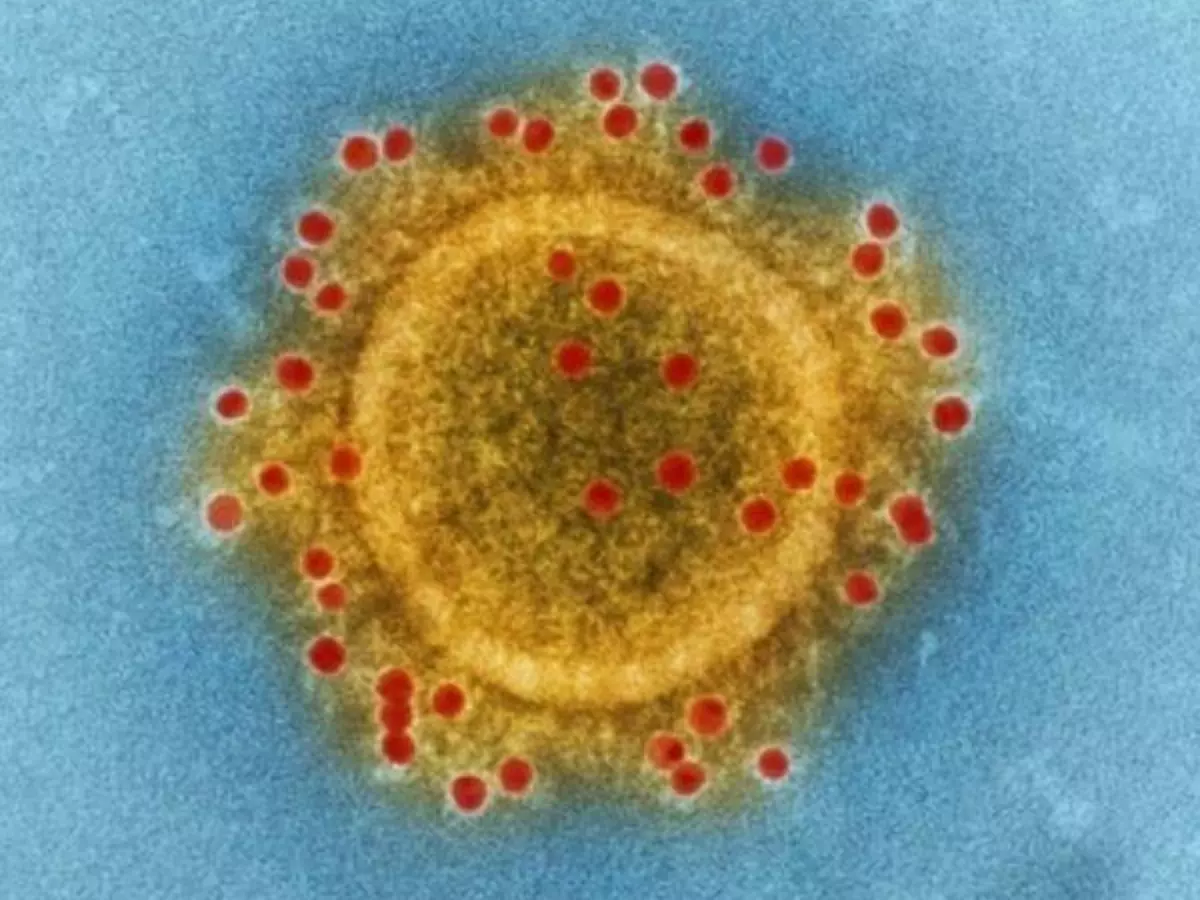Scientists Warn Of New Botswana Variant Of Covid With 'Horrific' Number Of Mutations: Here's All About It
The case found in Hong Kong was a 36-year-old man who had a negative PCR test before flying from Hong Kong to South Africa, where he stayed from 22 October to 11 November. He tested negative on his return to Hong Kong, but tested positive on 13 November while in quarantine.

As many parts of the world are preparing for a post COVID-19 life, a new variant of the virus has emerged that has an ¡°incredibly high¡± number of mutations, scientists are warning.
Are the first cases been reported?
It is feared that the B.1.1529, or Botswana variant ¨C an off-shoot of the B.1.1 ¨C could drive further transmission of the virus. The first cases found were three in Botswana, followed by another six cases in South Africa, and one in Hong Kong involving a traveller returning from South Africa.
 Unsplash
Unsplash
The case found in Hong Kong was a 36-year-old man who had a negative PCR test before flying from Hong Kong to South Africa, where he stayed from 22 October to 11 November. He tested negative on his return to Hong Kong, but tested positive on 13 November while in quarantine.
The experts said that the Botswana strain, worse than Delta variant of COVID-19, would be named 'Nu'. The B.1.1.529 variant has 32 mutations in the spike protein, the part of the virus that most vaccines use to prime the immune system against Covid. Mutations in the spike protein can affect the virus¡¯s ability to infect cells and spread, but also make it harder for immune cells to attack the pathogen.
Why is it 'horrific'?
Dr Tom Peacock, a virologist at Imperial College London, posted details of the new variant on a genome-sharing website, noting that the ¡°incredibly high amount of spike mutations suggest this could be of real concern¡±. He said the variant had the potential to be 'worse than nearly anything else about' ¡ª including the world-dominant Delta strain.
 Sky News/University of Cambridge/Addenbrooke's Hospital
Sky News/University of Cambridge/Addenbrooke's Hospital
In a series of tweets, Peacock said it ¡°very, very much should be monitored due to that horrific spike profile¡±, but added that it may turn out to be an ¡°odd cluster¡± that is not very transmissible. ¡°I hope that¡¯s the case,¡± he wrote.
Worth emphasising this is at super low numbers right now in a region of Africa that is fairly well sampled, however it very very much should be monitored due to that horrific spike profile (would take a guess that this would be worse antigenically than nearly anything else about)
¡ª Tom Peacock (@PeacockFlu) November 23, 2021
Dr Meera Chand, the Covid-19 incident director at the UK Health Security Agency, said that in partnership with scientific bodies around the globe, the agency was constantly monitoring the status of Sars-CoV-2 variants as they emerge and develop worldwide.
¡°As it is in the nature of viruses to mutate often and at random, it is not unusual for small numbers of cases to arise featuring new sets of mutations. Any variants showing evidence of spread are rapidly assessed,¡± she said.
Professor Francois Balloux, a geneticist at University College London, said it likely emerged in a lingering infection in an immunocompromised patient, possibly someone with undiagnosed AIDS.
Changes to the spike make it difficult for current jabs to fight off, because they train the immune system to recognise an older version of this part of the virus.
 AP
AP
Will it render the vaccine ineffective?
In patients with weakened immune systems infections can linger for months because the body is unable to fight it off. This gives the virus time to acquire mutations that allow it to get around the body's defences.
Scientists previously said the Kent 'Alpha' variant may have emerged in this way.
Professor Lawrence Young, a virologist at Warwick Medical School, said it 'looks like' this mutant strain could be better at dodging vaccine-triggered immunity than other mutants based on its mutations.
But he added: 'It's always difficult to say just by looking at [mutations], and so much depends on how the immune system sees the change and responds.
 Unsplash
Unsplash
About the mutations
Professor David Livermore, a microbiologist at the University of East Anglia, said the Botswana variant had sparked concern because of its 'very extensive' set of mutations.
He said: 'This increases the risk of vaccine escape, but doesn't prove that it will occur. 'Nor is the strain's infectiousness clear, and it too will be affected by the spike's structure.' The Botswana variant carries mutations K417N and E484A that are similar to those on the South African 'Beta' variant that made it better able to dodge vaccines.
 AFP
AFP
But it also has the N440K, found on Delta, and S477N, on the New York variant, which are also linked to antibody escape.
The variant also has mutations P681H and N679K which are 'rarely seen together' and could make it yet more jab resistant.
And the mutation N501Y that makes viruses more transmissible and was previously seen on the Kent 'Alpha' variant and Beta among others. Other mutations it has include G446S, T478K, Q493K, G496S, Q498R and Y505H, although their significance is not yet clear.
For more on news and current affairs from around the world please visit Indiatimes News.
